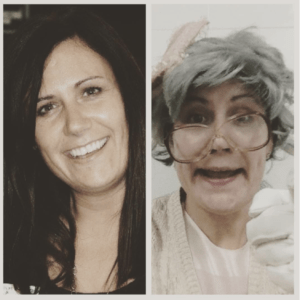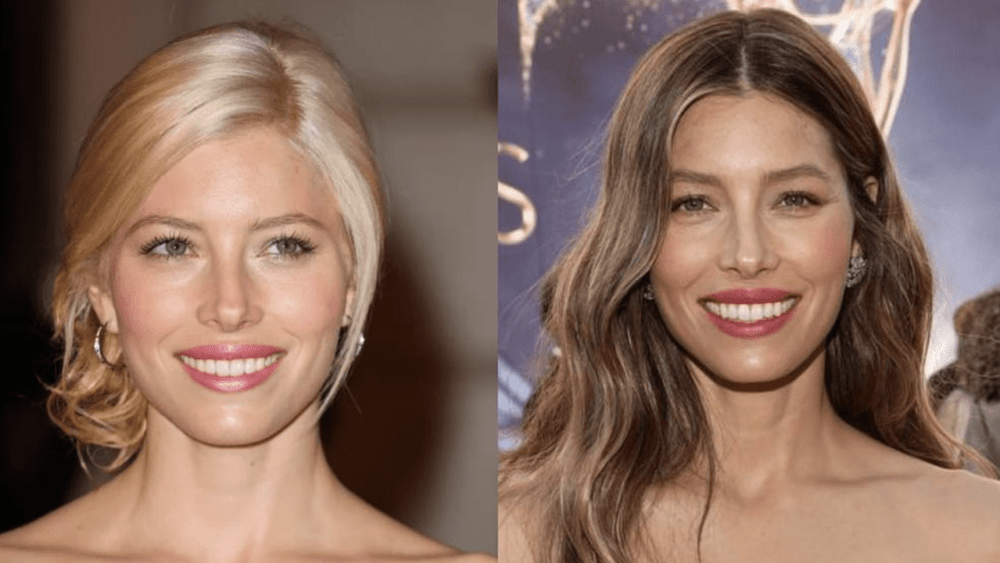If you’ve been anywhere near social media in the last week, you’d have come across the #10yearchallenge – the craze which has social media users posting a photo of themselves from ten years ago alongside a photo of themselves now. It’s going great guns, especially on Instagram. Especially with people who like how they look now, ten years later.
My first response was “Oh fun!” My second was utter horror at the thought of packaging up a pair of photos that invited my online friends to compare the appearance of my younger self with my older self.
“I can’t think of anything worse than highlighting how much I’ve deteriorated!” I told a friend.
My third reaction was to judge everyone who had participated in the 10 year challenge, deciding they were either superficial and vain, desperately insecure and searching for affirmation, or obsessive botoxers and photoshopping fakers.
“Charm is deceptive, and beauty is fleeting; but a woman who fears the LORD is to be praised” – Proverbs 31.30
I went searching for Bible verses that I could post as a passive-aggressive condemnation of their participation in the challenge. “Charm is deceptive, and beauty is fleeting; but a woman who fears the LORD is to be praised”, etc. Look it up.
Then I started searching for evidence to justify my conclusions. Like, really searching. In scholarly research databases.
I found this kind of ammunition: “Self-objectification occurs when females internalize the objectifying gaze of a society that tends to view the female body as a sexual object.” (Fredrickson & Roberts, 1997). Self-objectification has been linked to body image concerns in younger females, and various studies have assessed self-objectification in adult and older adult women (Slevec & Tiggemann, 2011). Overall, findings support a correlation between self-objectification and negative body image and disordered eating (Greenleaf, 2005; McKinley & Lyon, 2008; Slevec & Tiggemann, 2011).” That’s from Body Image in Adult Women: Moving Beyond the Younger Years. Look it up.
But when I actually sat down to write this article, I realised my conclusions were falling short. And no amount of academic research quotes plucked from their context was going to help me.
Firstly, most of the challenge selfies I’d seen really didn’t qualify as “sexually objectifying” material. They were of people’s faces, not bodies. And they were people I know who generally aren’t especially vain or superficial. Nor are they excessive botox-users or especially skilled photo editors. (Most of them, anyway).
 A few friends had even made it hilarious – like a friend who posted herself looking great 10 years ago, alongside a photo of her dressed up as an elderly woman (which she isn’t yet). Or another who texted me a picture of herself now alongside a shot of Princess Fiona from Shrek.
A few friends had even made it hilarious – like a friend who posted herself looking great 10 years ago, alongside a photo of her dressed up as an elderly woman (which she isn’t yet). Or another who texted me a picture of herself now alongside a shot of Princess Fiona from Shrek.
One friend had cleverly used the opportunity to post a satellite image of the extent of earth, sea and ice ten years ago and another showing it greatly reduced now. They hashtagged it not only with #10yearchallenge but also #NotAgeingWell. #WellPlayed, I thought.
A few hours later, I’ve resolved not to judge, even while deciding the #10yearchallenge isn’t for me. At 41 years of age, comparison with my younger self is one of the silly snares I am going to do my best to avoid.
And next time a #10yearchallenge kinda thing goes social media viral, could someone could please remind me to #CalmDown and #BeNice before I waste half a day thinking about something that – when all’s said and done – just doesn’t really matter much at all?
That would be #helpful.



